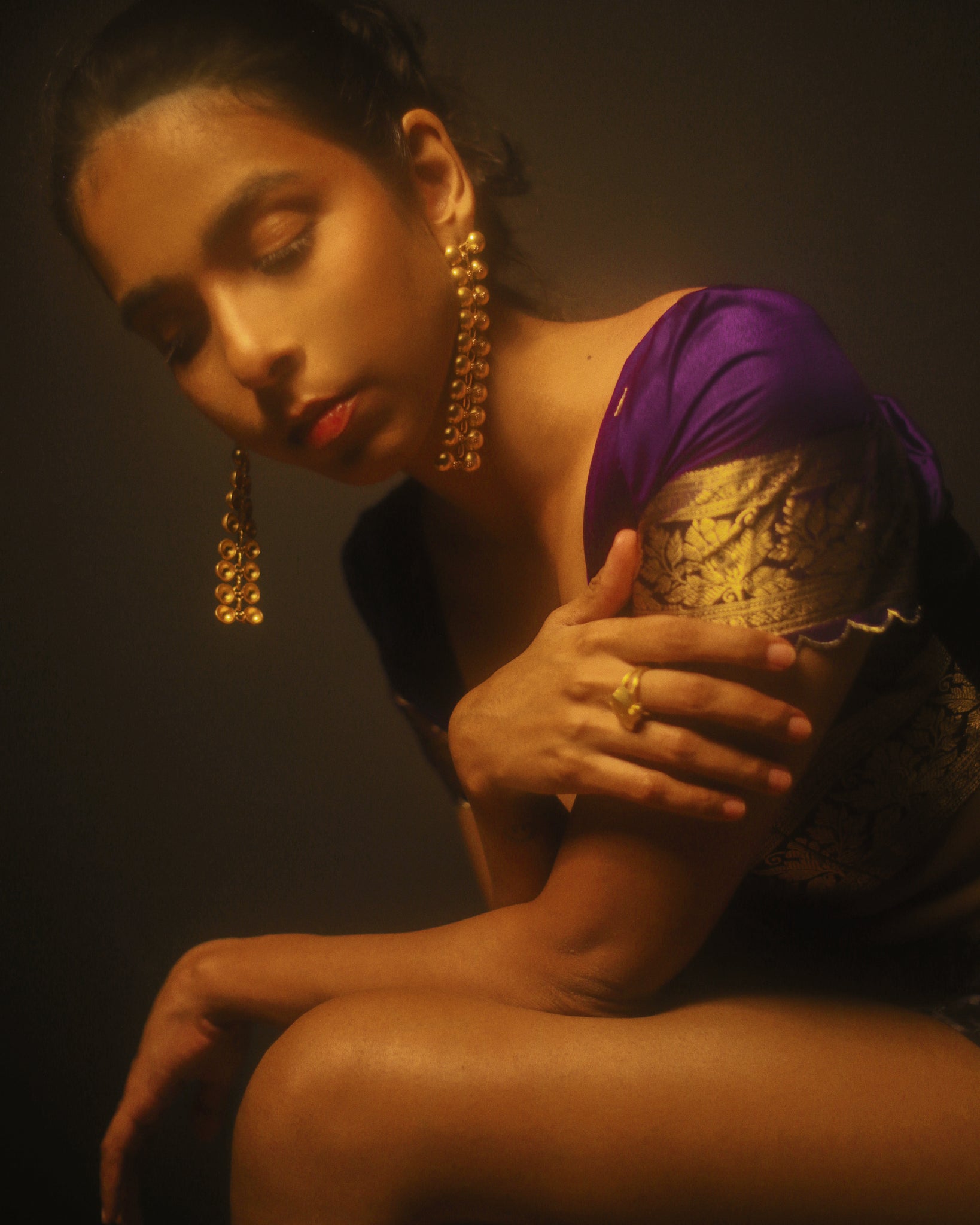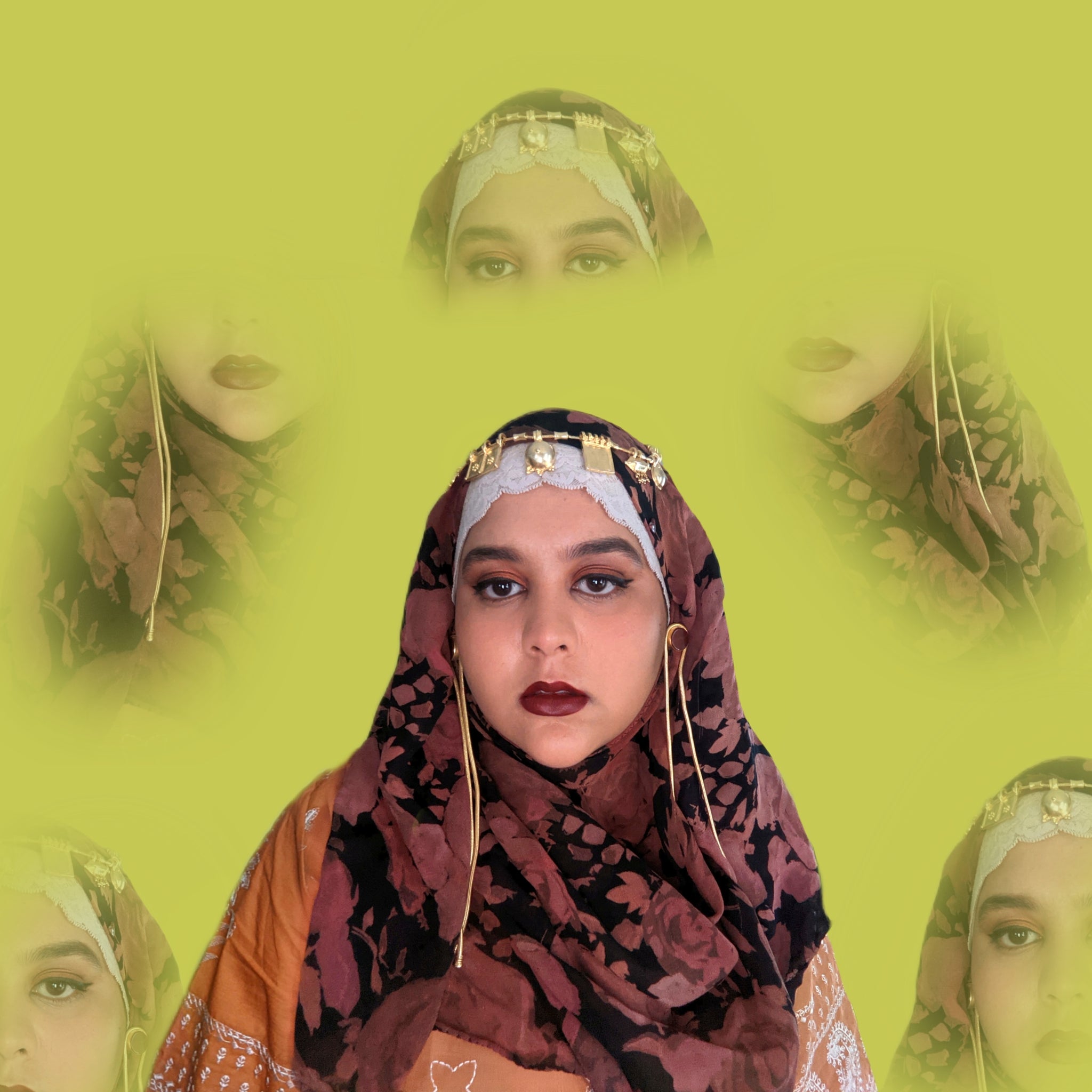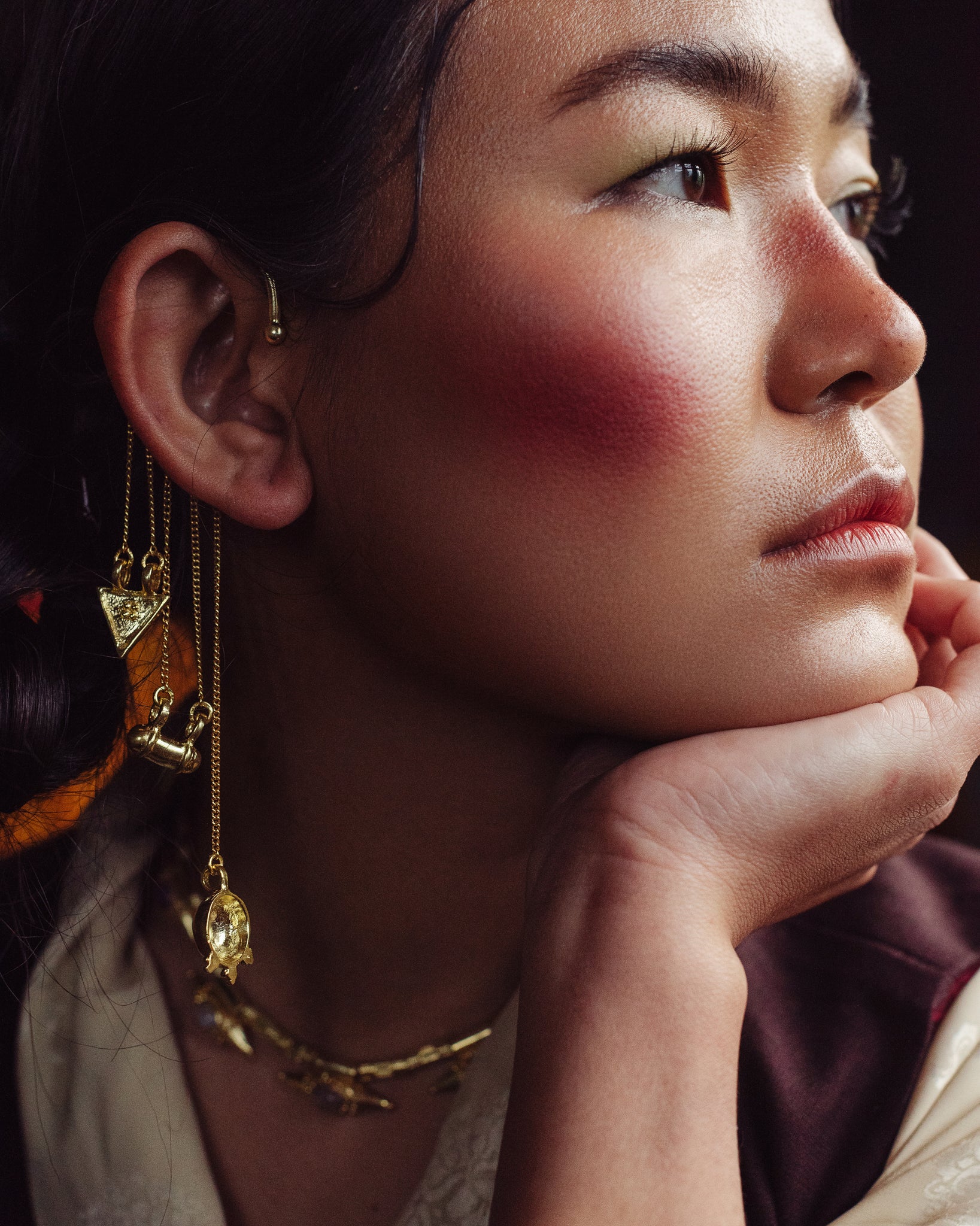
Fai
Tell us a little about yourself.
My name is Faiyaz and I’m a photographer and creative director from Singapore. I first picked up a camera fifteen years ago and I’m completely self-taught, learning mostly through trial and error.
My work explores identity and celebrates the diversity of South Asian beauty. Beyond photography, I’m also involved in other creative aspects of my work which may include makeup, styling, graphic design, art direction and video production.
What did baby Faiyaz want to be?
Baby Faiyaz loved animals (I still do!) and wanted to be a vet or zoologist. In fact, that was the path I was going down right until I was applying to university. I chickened out at the thought of such a big commitment and I wasn’t 100% sure if that was what I wanted to dedicate my life towards. I wasn't prepared to commit to the years of veterinary school, so I chose to pursue a path that would allow me to balance my time between academics and my art.

 Do you remember your first foray with 'art'?
Do you remember your first foray with 'art'?
For as long as I can remember I’ve been expressing myself through art. I was always with my colour pencils and markers as a kid—usually drawing animals or my favourite cartoon characters.
For over a decade during my school years, art was my favourite subject and I was part of the art club. It was a great opportunity to hone my technical capabilities in my earlier years; which in my later years, helped shape my understanding of the world and humanity.
How do you cultivate your art?
As they say, practice makes perfect. The practice is done consciously and involves a lot of self reflection afterwards. It’s not only helped me with my art, but it’s helped me understand myself better as well. It’s also important to stay curious—I’m in constant search of new ways of doing things.


Tell us a little bit about the model and styling.
I’ve been wanting to photograph my friend Kameswari for the longest time so we took this opportunity to explore ideas of nostalgia and family heirlooms. All the saris and blouses that I used in the styling belong to Kameswari’s mother, including her wedding sari. I wanted to incorporate pieces from Olio because the brand embodies the idea of a modern day heirloom.
Where do you look for inspiration?
I tend to look to the past a lot, especially within South Asia, where traditions, knowledge and skills have been passed down through generations—things such as painting, textile weaving, sculpting, singing and dancing. It’s something that connects us to the past and a great reminder that what we create has the potential to transcend time and contribute to culture.


Why is it important to decolonise?
Many social issues we face today can be linked to colonialism as the root cause. It’s important to know why the world is the way it is today, in order to find more effective solutions and reparations.
In a nutshell, colonisation is invasion, where one group of people take over the land and impose their culture on an indigenous group of people. Modern colonisation dates back to the 15th century, when European nations sought to expand their wealth and power, erasing indigenous sovereignty in the process.
Colonisation goes beyond the physical—it is cultural and psychological, therefore it not only impacted first generations of people colonised, but the enduring issues get passed down through generations, for centuries to come. Decolonisation today, collectively and individually, is a way to reverse and remedy this through cultural, psychological and economic freedom.
One simple way we can all decolonise.
Make the effort to expand your knowledge in a well-rounded way. You could start by reading history books that were not written by or for the West. For example, euro-centric textbooks tend to glorify colonialism, whereas if you read different critical works by other historians, you get a better picture and you can see how colonialism has shaped the world today.
Concept, styling, make up: Faiyaz. Follow him here.




